Ever wondered why your lips often crack and become chapped — even if the rest of your skin is oily?
Lips commonly become dry and cracked in winter when the air is cold and parched. Very hot weather or strong winds can also promote chapping.
Luckily, a few straightforward habits can help maintain soft, smooth lips. This lip care regimen will help keep your lips in great condition year-round.
How to care for your lips
Unlike the skin covering most of your body, lips lack sebaceous glands. These tiny glands empty into hair follicles and produce the oils that keep skin supple and hydrated, explains Nina Desai, MD, a board-certified dermatologist in California.
Although you might instinctively lick your lips to moisten them, that actually increases dryness, Desai says.
Licking can also encourage yeast growth on the lips, potentially causing angular cheilitis — painful inflammation at the mouth corners.
The foundation of healthy lips is applying a moisturizing product daily. If your lips are especially dry, consider exfoliating 1–2 times per week.
“If your lips are generally healthy, exfoliation isn’t required,” says Suzanne Friedler, MD, a board-certified dermatologist with Advanced Dermatology PC in New York. “But if they tend to be flaky and dry, gentle exfoliation can smooth rough patches so lip color goes on more evenly.”
Step-by-step daily lip care routine
A lip care routine has two components: hydration and exfoliation. Exfoliation is only necessary if your lips often chap or crack.
Hydrate
“Anytime your lips feel dry is a good time to use a lip balm,” Friedler says. Follow these steps:
- Use a clean applicator or your fingers to apply a moisturizing balm generously, covering the lips and corners.
- If you’ll be outdoors and your lip product lacks sun protection, put on an SPF 30+ lip balm over it.
- Reapply at regular intervals during the day as needed. Desai advises using a hydrating lip product 2–4 times daily. You may need to apply more often if your lips are very dry or you have eczema.
Exfoliate
“Exfoliating can remove flaky, dry skin buildup and restore the shine, softness, and smoothness we all want,” Desai says.
She suggests exfoliating 1–2 times weekly as part of your evening routine:
- Scoop a small amount of scrub onto your fingertips.
- Gently massage the lips in tiny circular motions for no longer than 30 seconds.
- Allow the mixture to sit on your lips for 10 minutes so the nourishing oils can penetrate.
- Rinse with warm water.
- Pat dry with a clean towel.
- Apply a protective balm to seal in moisture and calm the lips.
To support lip health, stay well-hydrated and avoid picking or biting your lips, Desai adds.
Also make sure to use an SPF 30+ product whenever you’re outdoors — either included in your lip product or layered on top.
“The lips are a frequent location for precancerous changes and need sun protection,” Desai notes.
Lip care home remedies
These DIY mixtures can complement your lip care routine.
Lip scrub
To whip up a basic lip scrub, Desai suggests mixing 2 teaspoons of a natural abrasive like salt or sugar with 1 tablespoon of a nourishing oil.
Good nourishing options include:
- coconut oil
- jojoba oil
- avocado oil
- beeswax
- pure petrolatum
- almond oil
- shea butter

Add extra oil if you prefer a thinner texture.
Lip balm
You can make a simple balm using those same nourishing components without the abrasive ingredient.
Ingredients
- 2 tbsp. shea butter
- 4 tbsp. liquid oil such as coconut, almond, or olive oil
- 3 tbsp. beeswax pellets
Directions
- Melt all ingredients in the microwave for 30 seconds.
- Stir to combine.
- Repeat microwaving and stirring until fully blended.
- Pour into jars or tubes and let cool.
“Just avoid applying oils to facial skin where they can trigger acne,” Friedler warns.
Lip care for men
Gender doesn’t change lip care needs. If you have lips, they need attention. The same tips and expert advice apply regardless of how you identify.
Products
Desai says ointments are generally better at trapping moisture than balms. She favors ingredients such as:
- white petrolatum
- lanolin
- shea butter
- beeswax
- glycerin
- ceramides
Desai recommends these lip products:
- Aquaphor Lip Repair with shea butter and calming chamomile essence
- CeraVe Healing Ointment with petrolatum, ceramides, and hyaluronic acid for cracked skin
- Vaseline Pure Petroleum Jelly to lock in moisture on very dry skin
- Glo Skin Beauty Barrier Balm with petrolatum, glycerin, and plant oils for chapped lips and cuticles
- EltaMD UV Lip Balm Broad-Spectrum SPF 36 with petrolatum and castor oil plus sun protection
- Supergoop PLAY Lip Balm SPF 30 with shea butter, sesame and sunflower oils and SPF protection
- Colorscience Sunforgettable Lip Shine SPF 35 — a subtle pink gloss with hyaluronic acid, vitamin E, and sun protection
Friedler advises this option for very dry lips:
- Dr Dan’s Cortibalm containing hydrocortisone, beeswax, petroleum jelly, and mineral oil for severely dry lips
For exfoliation, Desai suggests these sugar-based scrubs:
Safety
Desai advises avoiding potentially irritating ingredients such as:
- camphor
- cinnamon
- eucalyptus oil
- menthol
- peppermint oil
- synthetic fragrances
“These can not only worsen lip dryness, but may also trigger irritant or allergic reactions, causing itching, burning, or stinging,” she explains.
The American Academy of Dermatology also suggests avoiding the following when your lips are already chapped:
- lanolin
- octinoxate
- oxybenzone
- phenol (phenyl)
- salicylic acid
- perfumes and flavorings
And when exfoliating, don’t go too hard.
“Too-aggressive exfoliation impairs the lips’ barrier function and makes it harder for them to retain moisture,” Friedler warns.
Takeaway
Lips lack sebaceous glands found elsewhere on your skin, making them more prone to dryness and chapping, especially in cold, very hot, or windy conditions.
Following a regular lip care routine will help keep your lips soft and smooth.
Choose a balm with ingredients like shea butter or petrolatum, and apply whenever your lips feel dry.
For very dry lips, exfoliate once or twice weekly using sugar or salt blended with a nourishing oil, then finish with a balm. And remember to use SPF 30+ on your lips whenever you’ll be outside.

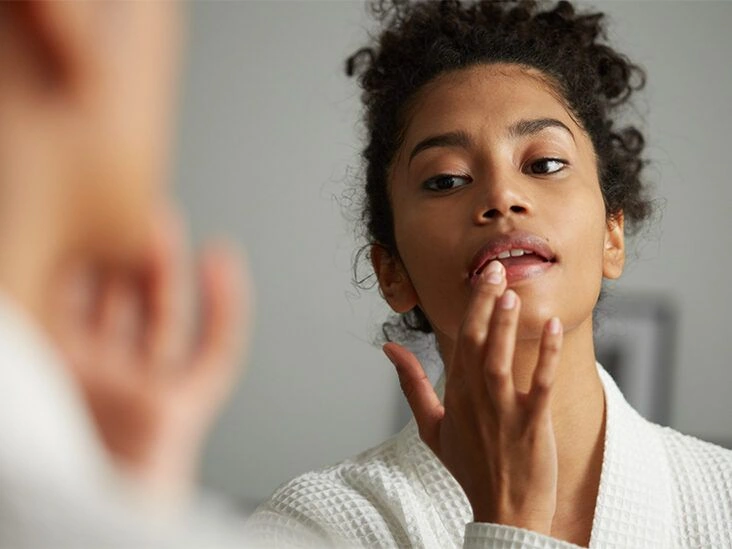
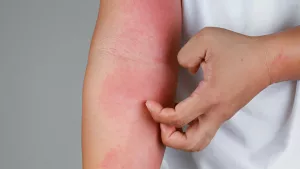

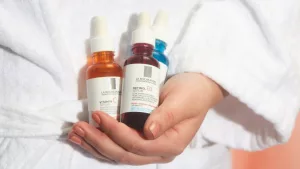
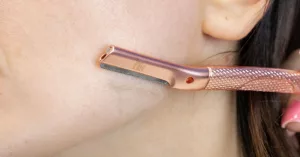
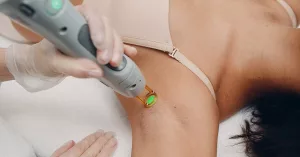

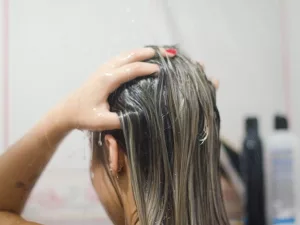
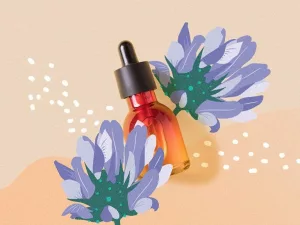





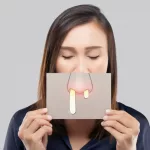




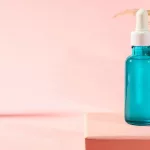
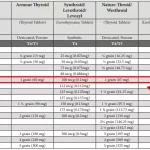
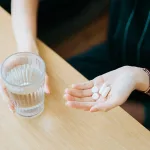
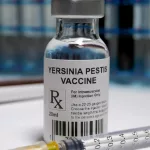

Leave a Reply
You must be logged in to post a comment.